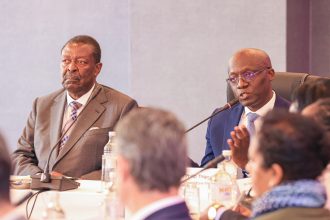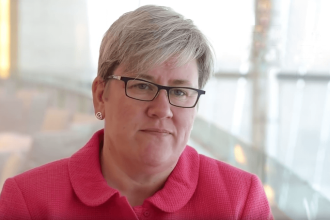The African Union’s Africa Fertilizer and Soil Health Summit (AFSH24) has kicked off Tuesday in Nairobi, Kenya, drawing together over 4,000 participants including 8 heads of state and government, 25 ministers of agriculture, 32 ministers of foreign affairs, government officials, scientists, representatives of civil society and partners.
The summit is co-organized by the African Union and the Government of the Republic of Kenya, with support from various partners. It aims to foster crucial discussions on enhancing the value of land as a pivotal asset for farmers.
Over the next three days, participants will engage in dialogue to steer Africa’s agricultural transformation, while setting the agenda for its future food systems, a key item in the 50-year development plan, Agenda 2063.
Notably, AFSH24 seeks to evaluate progress since the 2006 Abuja Declaration, which aimed to elevate fertilizer use for agricultural growth to a minimum of 50t/ha, a target that remains largely unmet, highlighting the urgency for innovative approaches to address the continent’s deteriorating soil health and its related unsustainable expansion of croplands.
Fertilizer consumption (kilograms per hectare of arable land ranges from 0.03 in Sudan and 1.04 KG in Somalia to 542.47 in Seychelles and 542.57 in Arab Republic of Egypt, the highest figure recorded by an African country.
10 countries met or surpassed the 2006 Abuja declaration. These are: Morocco 55.29, Eswatini 57.77, Botswana 59.27, Kenya 60.66, Zambia 63.90, Malawi 96.74, South Africa 104.64, Mauritius 186.50, Seychelles 542.47 and Arab Republic of Egypt 542.57.
“Where fertilizer uptake has increased, the yield gains in relation to input efficiency remain unpredictable, especially in rainfed agriculture. Uganda’s current fertilizer use is at 2kgs/ha,” said Hon. Frank Tumwebaze, Minister of Agriculture, Animal Industry and Fisheries of the
Republic of Uganda and Chair of the AU Specialized Technical Committee on Agriculture, Rural Development, Water and Environment.
Conversations at AFSH24 seek a holistic approach to agricultural sustainability, which prioritizes climate change mitigation, land restoration, and biodiversity conservation in agricultural practices.
Speaking during the opening ceremony, H.E. Amb. Josefa Leonel Correia Sacko, the Commissioner for Agriculture, Rural Development, Blue Economy, and Sustainable Environment at the African Union Commission (AUC), emphasized the need for collaborative action and innovative solutions.
She said, “Despite Africa’s soils being among the oldest globally, they have become the poorest in the world, losing over US$4 billion worth of soil nutrients each year and severely risking Africa’s ability to feed itself. Urgent action is needed now and this year’s Summit will define the next action for Africa.”
Kenya’s Cabinet Secretary for Agriculture and Livestock Development (MoALD), Hon. Mithika Linturi expressed optimism that critical decisions will be arrived at during the summit, to drive an immediate transformation in Africa’s soil health for the attainment of food security and economic growth.
He said, “Several AU member states are lagging in achieving the 50Kg/ha target of the Abuja Declaration. The AFSH Summit is the continent’s largest soil health forum and I believe it will set the pace to quickly reclaim Africa’s degraded soils.”
This year’s Summit is held under the theme “Listen to the Land” which seeks to evaluate the state of Africa’s soil health, while reviewing the progress made since previous commitments by African leaders to boost fertilizer use for agricultural growth in Africa. The theme is a Call to Action for stakeholders to pay attention to the needs of the land in terms of soil nutrients, soil moisture, essential minerals, soil organisms, impact of climate change, and consider adopting regenerative practices, policies and approaches that will improve the long term value of land as a critical asset for farmers. The goal is to unlock the potential of Africa feeding Africa, and Africa feeding the world.
Expected outcomes from the event include the drafting and endorsement of the Nairobi Declaration on Fertilizer and Soil Health, a comprehensive document delineating commitments, strategies, and actionable directions aimed at enhancing the sustainability of fertilizer use and other soil health practices at both the regional and continental levels.
A 10-year Action Plan and mechanisms to finance it are also anticipated from the summit, offering concrete guidelines on new policies and investments to drive soil health transformation across Africa.
Notably, a significant $ 15 billion of private sector investment will be needed to increase the local manufacturing of mineral fertilizers. For accelerated impact, the target is to triple the local production of organic and inorganic fertilizers by 2033.




